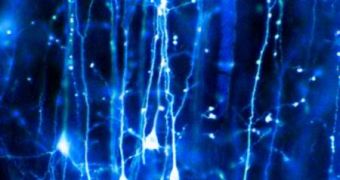In a new comparative study of animal brains, it was revealed that the size of the brain is not necessarily a clear indicator that more mass equals more smarts. In a paper published in the November 17 issue of the respected scientific journal Current Biology, researchers report that insects with brains the size of a pinhead can at times outsmart much bigger animals, with brains several orders of magnitude larger. Past studies suggest that larger animals have larger brain mass simply because they need to control more things, and not on account of the fact that they are smarter, LiveScience reports.
One of the reasons for larger cortical mass could be the fact that larger creatures, such as mice, men and elephants, need to control a lot more organs than insects do. These organs are also more complex, and require a lot of special attention, especially from the circulatory system. Species such as humans also need to control larger, more powerful muscles, and ensuring smooth control over the limbs – such as when performing delicate tasks – requires a lot of superior brain functions.
“In bigger brains we often don't find more complexity, just an endless repetition of the same neural circuits over and over. This might add detail to remembered images or sounds, but not add any degree of complexity. To use a computer analogy, bigger brains might in many cases be bigger hard drives, not necessarily better processors,” explains Queen Mary University of London sensory and behavioral ecology professor Lars Chittka. Further evidence that this is true, other experts say, could be collected from the fact that the human brain has been shrinking for the past 5,000 years, whereas our general level of intelligence did not.
The authors of the new study in fact suggest that highly-developed intelligence only require a small number of dedicated neurons, and not grams after grams of mass. According to some computer models, very small neurological circuits are perfectly able to generating consciousness. This finding could also have implication for the way neuroscientist approach finding the headquarters of this trait inside our own brains. In theory, even small mosquitoes and common flies could be self-conscious, given that their brains indeed contain small neurological circuits.

 14 DAY TRIAL //
14 DAY TRIAL //